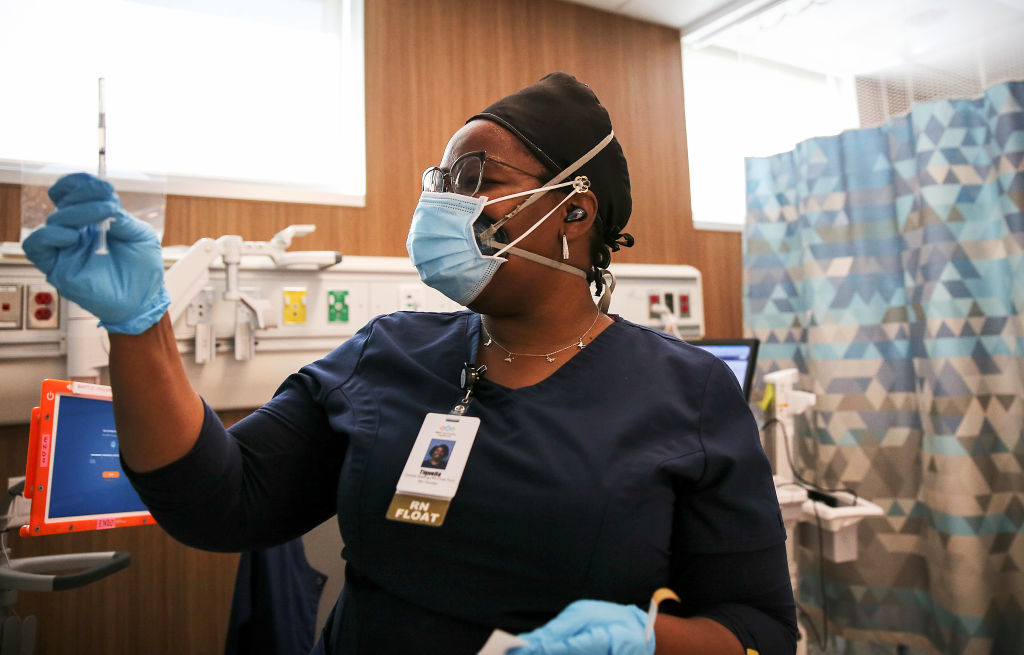19:23
Commentary
Commentary
Many travel nurses opt for temporary assignments because of the autonomy and opportunities
The incentives are not just the big boost in pay
Travel nurses take short-term contracts that can require long commutes or temporarily living away from home. Time and again, they have to get used to new co-workers, new protocols and new workplaces.
So why would staff nurses quit their stable jobs to become travel nurses?
Well, for one, they get bigger paychecks. But U.S. nurses have other rationales besides making more money, according to a study I conducted.
To do this research, I interviewed 27 registered nurses based in different places.
Many of the people I interviewed disclosed that they left permanent positions to combat burnout. Although they welcomed the bump in pay, travel nursing also gave them the autonomy to decide when and where to work. That autonomy allowed them to pursue personal and professional interests that were meaningful to them, and it made some of the other hassles, such as long commutes, worth it.
On top of earning more money, travel nursing “gives you an opportunity to explore different areas,” said a nurse I’ll call Cynthia, because research rules require anonymity. “When you actually live there for three months, it gives you a chance to really immerse yourself in the area and really get to know not just the touristy stuff, but really hang out with the locals and really be exposed to that area.”
Other study participants said they enjoyed the novelty and educational opportunities.
“You don’t get bored or stuck in a routine,” Michelle said. “You’re always trying to learn new policies at the new hospital that you’re in, learning about the new doctors, nursing staff, new ways of doing things, where things are located. That helps keep me from feeling burned out so quickly.”
Said Patricia: “I want to see how other operating rooms across the country do things and how they do things differently. I do learn a lot of things going from place to place.”
Why it matters
A growing number of U.S. nurses were obtaining temporary assignments before the COVID-19 pandemic began.
But travel nursing became much more widespread in 2020, when hospitals were scrambling to keep their staffing levels high enough as millions of Americans were becoming infected with the coronavirus, straining capacity in many communities.
While compensation varies widely, the median pay of registered nurses in 2022 was US$81,220, about 35% less than the $110,000 that registered nurses who traveled earned.
At the height of the COVID-19 pandemic, travel nurses could earn an even bigger premium. Many were paid twice as much as staff nurses.
Once the number of Americans with severe symptoms fell, that premium declined too. But there are still over 1.7 million travel nurses in the U.S. Hiring them is one of the main ways that hospitals cope with a long-term shortage of nurses.
But nurses with permanent jobs can get aggravated by this arrangement when they learn how much more travel nurses earn for doing the same work, as I found through another research project.
What other research is being done
Research supports a widely reported trend: More Americans have temporary jobs and freelance employment than in the past.
While travel nurses can help hospitals, nursing homes and doctors’ offices meet staffing needs, there are signs that patients don’t always fare as well with their care.
And a Canadian study found that when hospitals let staff nurses work part time and offer other alternative arrangements, their retention rates may rise.
The Research Brief is a short take about interesting academic work.![]()
This article is republished from The Conversation under a Creative Commons license. Read the original article.
GET THE MORNING HEADLINES DELIVERED TO YOUR INBOX
Our stories may be republished online or in print under Creative Commons license CC BY-NC-ND 4.0. We ask that you edit only for style or to shorten, provide proper attribution and link to our website. AP and Getty images may not be republished. Please see our republishing guidelines for use of any other photos and graphics.




Ivan Gan